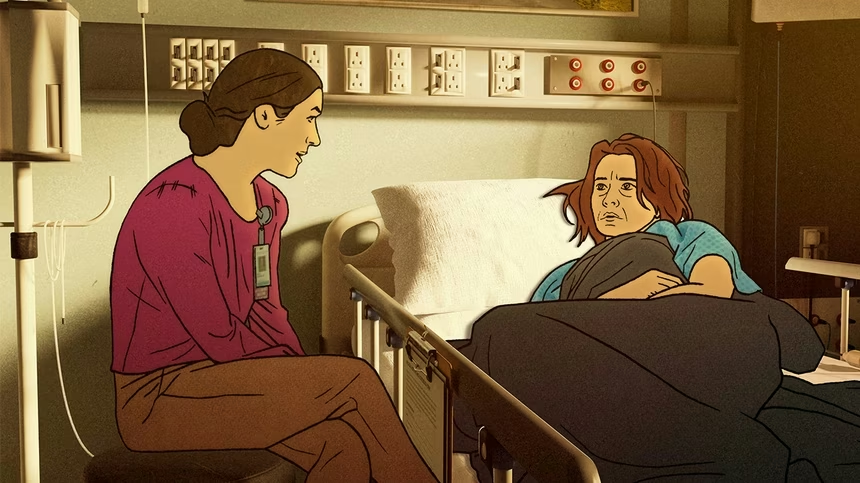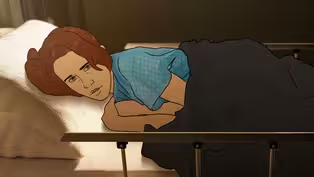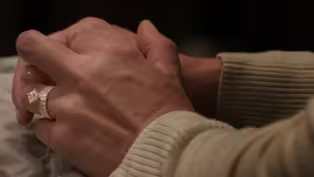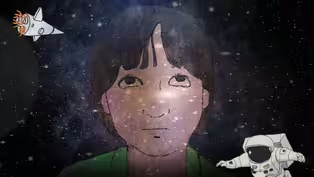
The Opioid Trilogy, Episode 3: Coming Home
Special | 15m 13sVideo has Closed Captions
A Milwaukee woman’s journey from addiction to healing reshapes recovery for her community.
Coming Home follows Tahira Malik as she rebuilds her life after opioid addiction and incarceration. Now the founder of Samad’s House in Milwaukee, she offers a path to healing for women reentering society. Through intimate conversations with her daughter, this final installment of The Opioid Trilogy reveals the human toll of addiction and the power of second chances.
Problems playing video? | Closed Captioning Feedback
Problems playing video? | Closed Captioning Feedback

The Opioid Trilogy, Episode 3: Coming Home
Special | 15m 13sVideo has Closed Captions
Coming Home follows Tahira Malik as she rebuilds her life after opioid addiction and incarceration. Now the founder of Samad’s House in Milwaukee, she offers a path to healing for women reentering society. Through intimate conversations with her daughter, this final installment of The Opioid Trilogy reveals the human toll of addiction and the power of second chances.
Problems playing video? | Closed Captioning Feedback
How to Watch Independent Lens
Independent Lens is available to stream on pbs.org and the free PBS App, available on iPhone, Apple TV, Android TV, Android smartphones, Amazon Fire TV, Amazon Fire Tablet, Roku, Samsung Smart TV, and Vizio.

The Misunderstood Pain Behind Addiction
An interview with filmmaker Joanna Rudnick about making the animated short PBS documentary 'Brother' about her brother and his journey with addiction.Providing Support for PBS.org
Learn Moreabout PBS online sponsorshipMore from This Collection
Films that provide an unflinching look at healthcare and mental health in the U.S.
The Opioid Trilogy, Episode 2: Do No Harm
Video has Closed Captions
One woman’s journey from heroin addiction to healing, recovery, and hope. (15m 10s)
Video has Closed Captions
Camp Widow is a place for widowed people to find both camaraderie and unexpected joy. (15m 21s)
Video has Closed Captions
A filmmaker's brother opens up about his recovery from opioid use disorder. (14m 21s)
Providing Support for PBS.org
Learn Moreabout PBS online sponsorship(engine rumbling) (car radio hissing) (station tuning/static) - [Radio Speaker] Some patients may be afraid of taking opioids because they're perceived as too strong or addictive, but that is far from actual facts.
(radio hissing) (light upbeat music) - [Tahira] After I had my first child, I was stopped at a red light, (car crashes) and this truck rear ended me.
(ears ringing) (ambulance sirens) I'm having some excruciating pain.
The doctor started prescribing the Percocets, and it just spiraled out of control from there.
(baby whining) It's a blessing and a curse that she was able to see that.
It's a blessing because hopefully that'll be a deterrent in her life- - Mom?
- [Tahira] But it was a curse because of the trauma I put her through.
- I don't know why I even try.
(uneasy music) - Good morning.
- Hey, Mom.
- Hey, babe.
How are you today?
- Good.
How are you?
- [Tahira] I'm good.
I'm excited.
I need my hair done today.
- [Samia] Yeah?
What you thinking?
(Tahira sighs) - I need some highlights because spring is coming.
- Okay.
I can do that.
I can make that happen.
- [Tahira] Did I pick the right color?
- Eh... You know, I always feel a way about your colors you pick.
(Tahira laughs) But I mean, if you like it, I love it.
(both laughing) - You know, you always want to be so independent.
You always want to make your own decisions.
- [Samia] And I still do.
Isn't that crazy?
- Yeah, because you were supposed to come out and you kept me in labor for 29 hours.
Like, you always came at your own time.
- Yeah.
I still have everybody waiting on me.
- You do.
(both laughing) You just turned 25, but you know what, Mi?
And I know you question life a lot, about where you are supposed to be in life - Mmhm.
- at this stage.
And at 25, I was confused.
I had a degree, Mimi, but I still didn't know what my purpose in life was supposed to be.
I didn't know.
And I had to travel through the depths of hell to understand what my purpose is in life.
So I was raised in a traditional Islamic household.
We prayed five times a day.
My mother was a homemaker and my father was very strict.
The man is the head of the household.
Every decision that regarded our family came from my dad.
I felt like my mother didn't have any power.
I knew that I didn't want to wear the burka and the niqab, which is the covering.
I knew that I didn't want an arranged marriage, because I wanted to pick my own husband.
I've never loved a man the way I've loved your father and I don't ever plan to love like that again, because it was so destructive.
And here I come finishing college and wanting to be in love and working, and thought this man was everything.
And then, your dad loved the nightlife.
He made me feel like I wasn't enough.
No matter what I did, I wasn't enough.
He still needed more women.
So I was like, well, why am I not good enough?
- Where is he?
- I felt lonely.
And what I keep telling you, when you feel lonely, you'll start doing things, um, that, to fill that space.
(car swooshing and crashing) When I had that accident and that doctor prescribed that Percocet, I liked that feeling.
I didn't care what your daddy did.
He never had to come home.
It was me and you and he'd never have to come home again, - Right.
- and I didn't care.
(door thuds) He would hide my medicine.
I teared through the house to look for it.
That's eventually what broke us up because I would need medicine and money, and I would sell things from our home.
- Mom, wake up.
- [Tahira] But not only am I taking drugs, I still have to live life, take care of a kid.
I have to get myself ready.
I got to go to work.
But I can't do any of that until I have that drug, right?
And I started taking more and more.
Then it went to the Oxycodone.
Then it went to the methadone pills with the Xanax pills.
- I remember not, like, being able to, like, talk to you as much as I wanted to.
- How did that make you feel?
- It made me really sad because I see all the kids at school talk about their moms and everybody moms dropping 'em off, and, you know, I just didn't have that.
So it really made me sad.
- That was really a rough time.
I loved you.
I loved you every day.
Some days I was just too sick, though, to come around and to love you properly.
(police sirens) So then let's fast forward in life.
The government has started cracking down more on the doctors.
It even came to a time when they just cut us off.
- [Archival Speaker] New information tonight on the series of Pill Mill busts.
- [Reporter] Some of the doctors arrested are accused of selling thousands of painkillers illegally.
- How do you have someone addicted to this opioid and then you just say, "I can't give it to you anymore?"
(knocking) "Hello!"
Then I was introduced to smoking crack.
That's when the change came.
Not only am I addicted to drugs, I'm homeless.
My children are with me here and there.
I don't have any money.
My health has severely declined.
(Tahira coughing) Now I'm stealing from stores just because I need to get what I need to get.
I'll never forget that you and I sat on the steps on 15th Street and you said: "Ma-" - Why can't you- - [Tahira] "Why can't you be pretty?
Like your hair's not done.
Your teeth are falling out."
- I mean, you know, you didn't look like how all the other parents looked like, you just didn't look healthy.
Like, I give you money to go buy us, like, some food or something or some snacks and you just would never come back.
We wouldn't see you until a couple days later.
- I remember that.
♪ ♪ (birds chirping) I was at the family home on 15th and Center.
I was in the backyard and it was so sunny and I just looked up to the sky and I said, "God, please, I don't want to live like this anymore.
I can't live like this anymore."
- Please.
- I was tired.
I was so tired.
It was a point where, I wasn't...
I was taking the pills, but I wasn't getting high.
It would just stop my pain.
- Mhmm.
- And maybe a year later, I went to someone's house.
I came for the pills.
You got the pills?
- Yeah, I got them.
- And I didn't have no money.
She was like, "Well, you're going to have to go get me something from the store."
So we got in the car, so that I can pull off this heist.
♪ ♪ Went in there, grabbed some clothes, (police siren) and on my way out they stopped me.
I got kids at home.
I can't...
I didn't come home for over 13 months after that.
(door clanks) When you are addicted to opioids, oh my God... if your body doesn't have one, you get so physically sick.
- Help!
- I remember laying in a cell and thinking to God, "Please just take me.
Just take me.
This is too much.
I don't want to go through this.
This is too much."
Help.
- Mom.
- Help me, God.
- Then I thought of y'all, and that kept me fighting.
After coming out of the sickness, then I started feeling good about myself again, right.
And now you're looking at yourself like, "How did I let me get here?"
The women, they're so creative.
Take the strings out of either your underwear or a tampon and you could thread your eyebrows.
I'm telling you, we were creative, and we were getting cute.
It was so many women there like myself.
We were all forced into recovery, right?
- Mhmm.
- Now when you live in a community environment, you feed off each other energy and you support each other.
That was the only way I was able to get sober.
Now you imagine not using drugs for five or six months, but being in addiction for 15 to 20 years, right?
So they would go home and then a week, they would be back.
And I'm like, "Why are you back here?"
They would say, "Well, I didn't have anywhere else to go.
I started hanging out with the same friends."
I didn't think it was fair that we didn't have anywhere to go, anywhere safe to go.
And so as I sat there, I was like, "You know what?
I need a plan."
And I wrote up a business plan on some jailhouse paper to open up a transitional home for women.
I came home March 23rd, 2013.
I was so hell-bent on rebuilding my life because I had lost, I had lost so much, and then I had the barrier up that I was a felon.
Now how am I gonna find work as a felon?
- Right.
I remember you used to actually go out and look for jobs and stuff, and you even had to take jobs that you were overqualified for.
- And then I decided to do aftercare classes, alcohol and other drug use treatment, - Ohh.
- because I wanted to maintain my sobriety.
- Yeah.
And it just felt good to come home, to cook for you guys to go grocery shopping.
- [Samia] You said cook?
(both laughing) - Yeah, cook all those noodles.
(both laughing) Oh yeah.
Oh yeah.
So let me ask you, because I know a lot of it... you dealt with a lot of abandonment issues because of me.
How are you dealing with that now?
- (sighs) It's really actually taking a toll on me right now.
Honestly, I really feel like I need to go to therapy or something to try to deal with it.
Cause I'm dealing with it the best I can, but you know, it gets really hard, because I didn't know, you know, if you were going to stay sober, if you were going to leave, you know, again.
I didn't know what was going to happen then.
So I remember I was still at granny house then- - And then when you came home to me, - [Where were you when I needed you?]
you were so angry.
- [I was just a kid and you left me.]
And we sat down in the living room, you and I, just in the dark, - [You abandon me.]
- and you started screaming and crying, "Now you abandoned me.
You abandoned me.
I needed my mother, and you abandoned me."
And I literally just had to let you yell and scream.
And cry.
And I cried, and all I could say to you was, "Please forgive me.
Please forgive me.
- Yeah.
- Mama was in addiction."
I had to repeat that phrase to you a lot, didn't I?
- [Samia] Yeah.
- The kids are entitled to feel how they feel when they're dealing with a parent in addiction.
- Yeah.
- You absolutely right.
The one thing I'm experiencing with you is sometimes those emotions pop back up.
- Yeah, they do, actually.
- Those feelings pop back up.
- Yeah, they come up, you know, for me a lot.
- Yeah, and we have to keep processing through that.
- Yeah.
- That processing will never stop.
- Look at these pretty curls.
(Tahira cheers) Look how pretty you look with your curls.
- Yes!
I love it, Mi!
Wait till they see me at the house.
They gonna be like, "Ms.
T!"
I love this, Mi.
- [Radio Speaker] Tahira Malik, the founder of Samad's House, joining us today.
- [Tahira Recording] So at Samad House's, our programming is geared to rebuild the mind, the body, and the spirit after addiction so that they can regain custody of their children and build a stronger... - I know I've shared with all of you guys that I have a mugshot.
(people chuckling) I have a mugshot out there, and so the whole hot topic has been, do I share my mugshot?
And, Raqeema, what did you say?
- I said it can be motivation for others, so you should share it.
So they can see how far you've come.
- [Tahira] But what was your first words?
- Wow.
(people laughing) - I think it's so important for people to understand when I say I've walked every step that you walked, I've literally walked every step that you walked.
And so with that being said, you guys all are going to get 60 seconds.
I'm going to show you real quickly.
- Na-Aww.
- I used to look like that.
- Wow.
- [Tahira] That was me.
- I'm finna cry.
- Why?
- Look at you.
- I'm not, that's not me anymore though.
That's me for 15 years.
- You cleaned up well.
- That's me being sick for 15 years.
If I can do it, anybody could do it.
- Yeah.
- If I could rebuild my life, everybody in this room and out there who truly want to rebuild their life, you could do that.
You could do that.
That don't have to be you every day.
- Right.
- That don't have to be you.
Just because that was you yesterday, do not mean that's gonna to be you tomorrow.
And I don't want you ever to lose sight of what the end goal is.
Because if you don't have a plan, where do you end up at?
- [Person] Back at where we started from.
- Exactly.
Exactly.
And do you want to start back?
- [Person] No.
No.
(gentle music) (gentle music continues) (gentle music continues)
Support for PBS provided by:


















